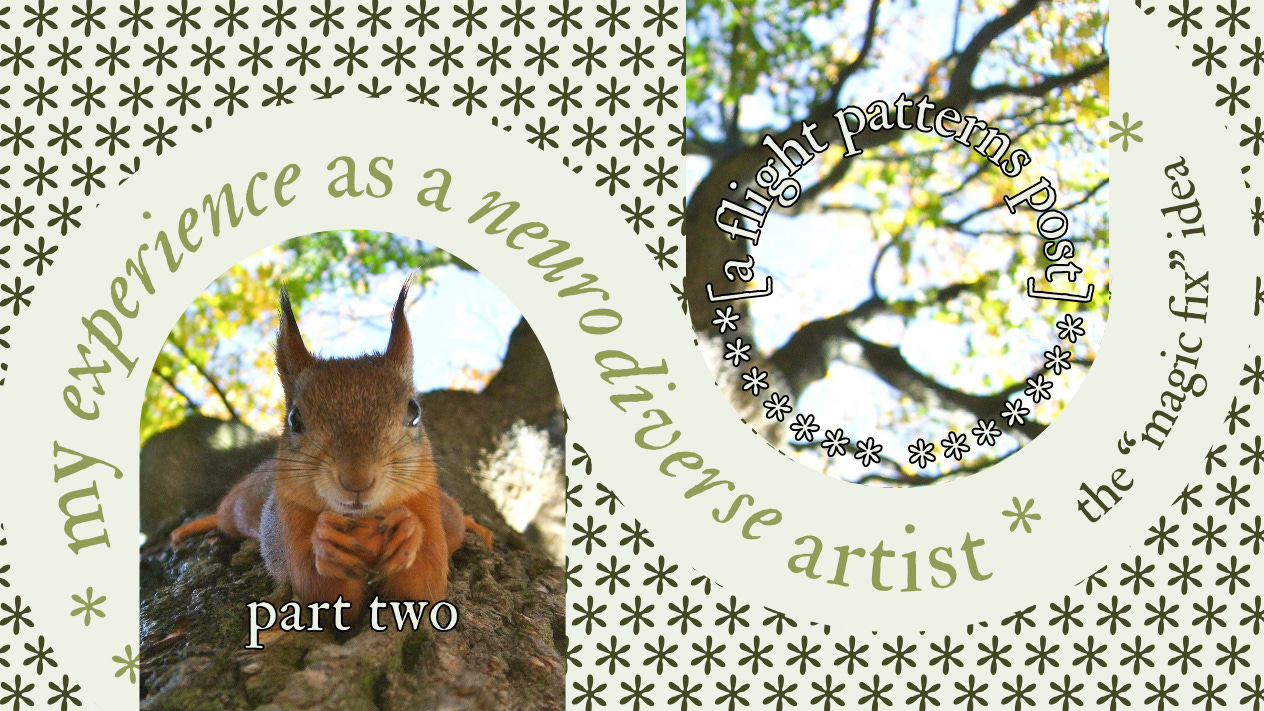Abracadabra!
Shazam!
Bippity-boppity-boo!
We don’t put stock in magic words such as these, but we know that words, especially labels, can hold power over us.
**content warning** mention of su*cide.
Neurodivergent diagnoses and labels sometimes carry the potent of magic words. These can affect how we think about ourselves and what we share with others. This post will cover thinking about myself and my mind.
When I set out to pursue a diagnosis, my counselor warned that it could come with a lot of emotions to work through. My mom cautioned me about having unrealistic expectations. My doctor ensured I understood that it wouldn’t be this “magic fix.”
And yet, the “magic fix” idea is such an easy mindset to fall into.
Just like how a label can affect how others view and treat us, having either an official diagnosis or new insight into how our minds works sparks this self consciousness or hyper-awareness that can change how we view ourselves. I call this “post-diagnosis consciousness,” or PDC. (Yes I made this term up to better discuss the phenomenon. If you have a “real” word for it, let me know.)
After a diagnosis (official or self-diagnosed,) I’ve observed PDC in others and myself, where they analyze all of their thoughts and actions in this new light. “So that’s why I chew gum/don’t like hugs/zone out in class.” I’ll catch myself in a textbook example of an ADHD symptom (what is it about SQUIRRELS? Why is “squirrel” such a weird word? What was I talking about?)
At least in my brain, identifying a “problem” means I instantly look for a “solution,” which is why the “magic fix” idea is ingrained into my thought process. The prefrontal cortex is the part of your brain that generates ideas without considering potential consequences. Ideas that my prefrontal cortex have brought to the table as “solutions'' for ADHD include:
-Going on a walk
-Getting plenty of sleep
-Coffee
-Making schedules and lists
-Training an emotional support kitten to ride on my shoulders
-Making a bunch of money so I can hire people to take care of me
-Living as a hermit in a hobbit hole so I never have to deal with a social situation
-Taking medication
-Doing drugs/drinking
-Getting a lobotomy
-Taking my life
Clearly, some of these solutions are harmful and some are unrealistic (unless you know anyone who has a budget hobbit hole available.)
There’s not a “magic fix,”and even the best solutions are temporary and take ongoing effort.
This is why the concept of “being on a journey” is so relatable to me. Because living with neurodivergence, creating with neurodivergence, talking about neurodivergence, it’s all a process. It’s not a steady upward trend. It’s mountains and valleys, marshes and meadows, with the occasional volcano thrown in there for good measure.
My mom tells me I give good advice, and that I really should try taking my own advice sometimes. And when my boyfriend read this, he said he agreed with my mom.
This is some advice I gave myself junior year of highschool that I actually do take. I wrote it for the fictitious Dr. Heinstead. She tells the main character, Dylan, “Nothing you or I or anybody else can do will eliminate this struggle. You’re right. It’s not going to get easier. You are going to get stronger.”
There is no “magic fix,” but there is living with intentionality, making holistic choices, finding a support system, and giving myself grace.
Disclaimer: This is my experience. I am not a doctor or licensed counselor or anything fancy like that, and this is not medical advice. Every human is different, especially when it comes to how they “brain.” If you are experiencing thoughts or sensations that concern you, please talk to a trusted person and seek help.
If you are at risk of hurting yourself or taking your life, please reach out to the 988 Suicide and Crisis Lifeline by texting or calling 988. Help is available.






